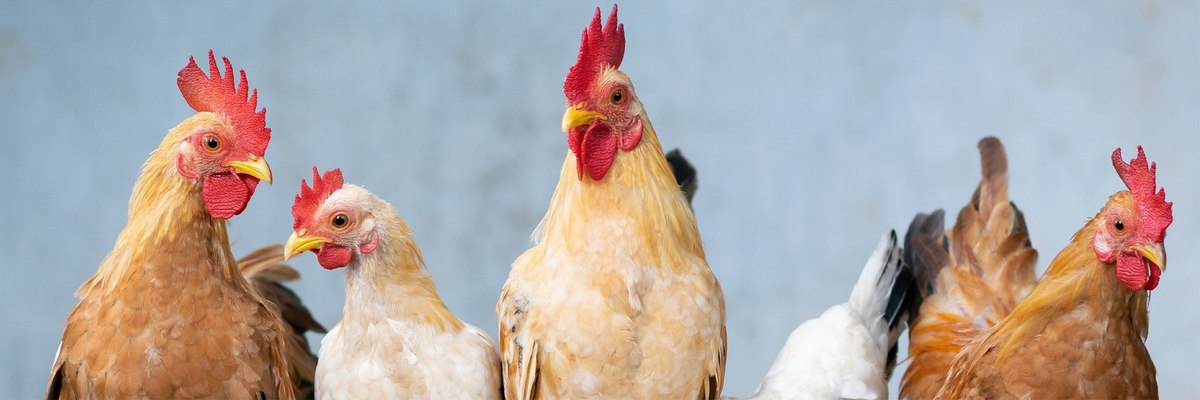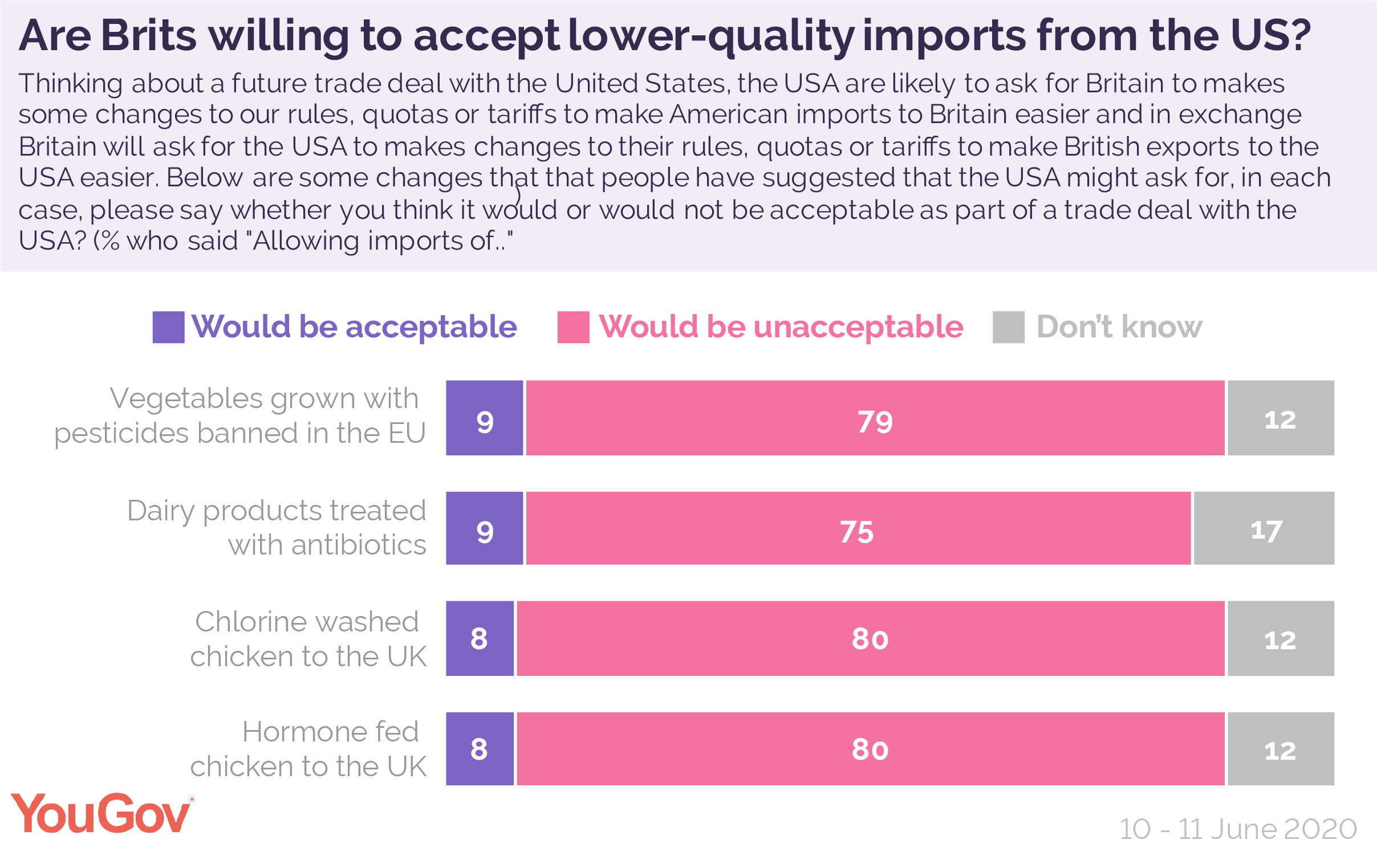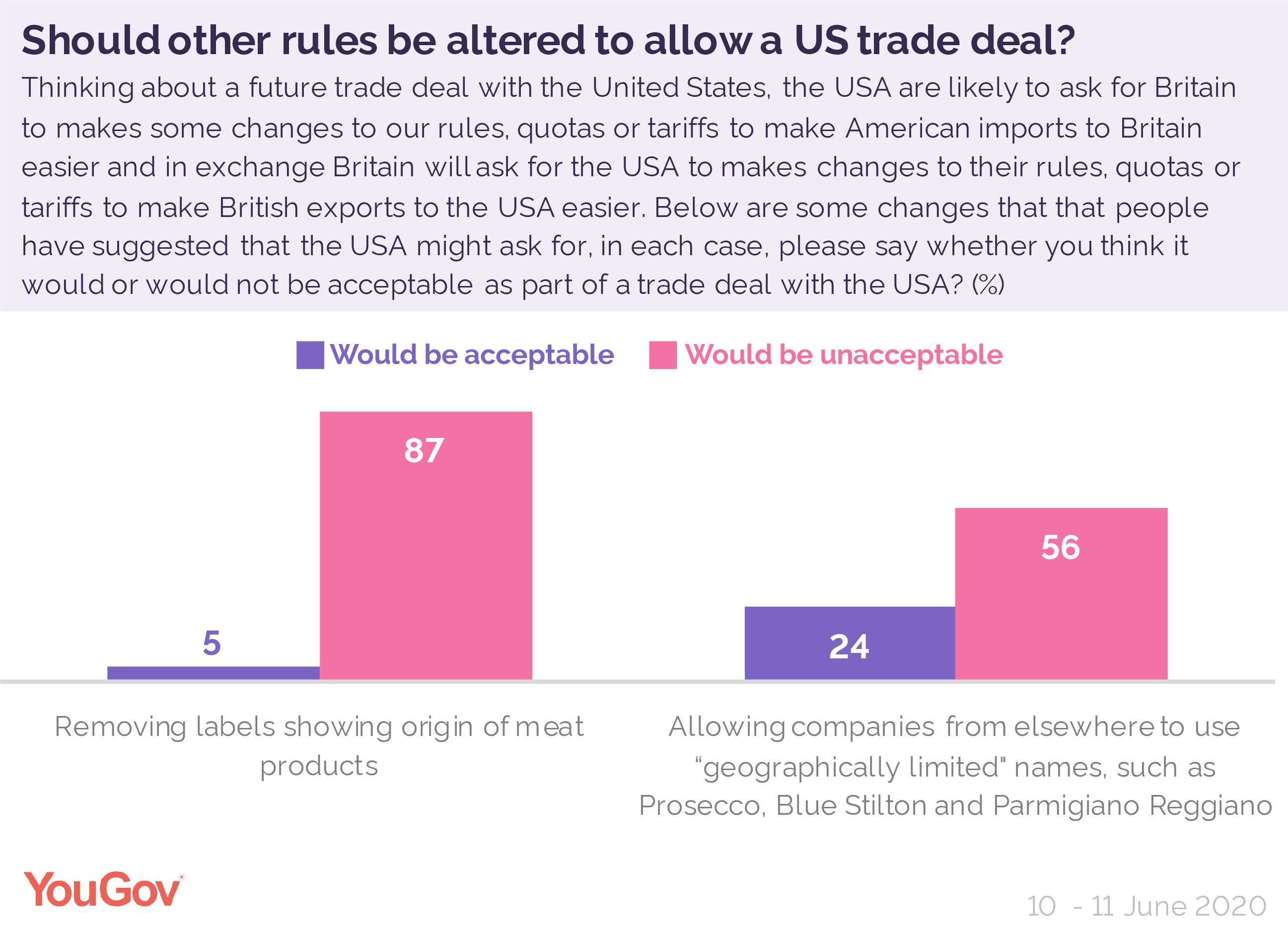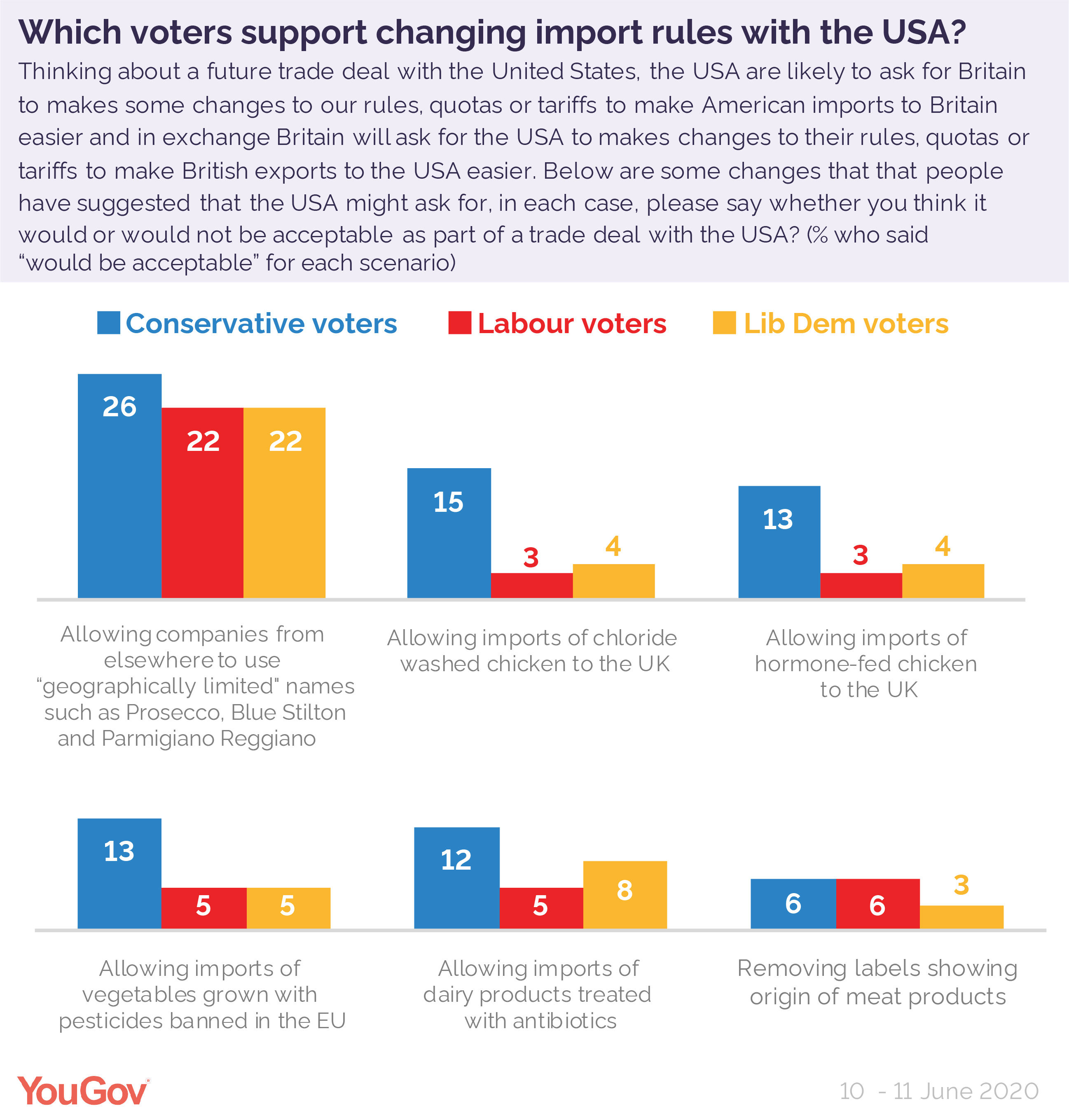The majority of Brits think we should not accept lower quality food imports in return for a trade deal with the United States
Progress behind the scenes to extricate Britain from the EU at the end of January has continued, despite COVID-19 dominating headlines in recent months. As talks with Europe roll on, the UK seeks its own trade deals across the world - and senior Conservative politicians claim the PM is willing to allow imports of currently-banned products to secure a deal with the USA.
Chlorine-washed chicken is one such example. This meat is treated with chlorine to kill potential bacteria, made necessary due to lower farming standards than EU law allows. It is current banned from sale here in the UK.
YouGov asked its panel about several potential changes that could come with a new trade deal, and the overwhelming repsonse was that Britons do not want to see lower-quality food products imported. Less than ten percent of adults say that any of the potential changes are acceptable.
Importing vegetables grown with pesticides that are illegal in the EU, but legal in the US, is considered to be an unacceptable concession by 79% of Britons, while another 75% say the same for dairy products that have been treated with antibiotics.
When it comes to the chlorinated chicken, eight in ten (80%) of Brits are opposed to allowing imports to the UK, and the same proportion are also against allowing chicken products that have been farmed using hormones.
Interestingly, while still opposed on the whole, men are universally more in favour of the changes than women. In the case of chlorinated chicken they are four times more likely (13% versus 3% of women) to approve.
Other changes to imports that have been proposed include removing labels that show the origin of meat products, and allowing companies to use protected designation of origin (PDO) names, such as Blue Stilton. Currently US manufacturers importing to the UK must use labelling showing their products to be imitations.
A similar number of Brits (87%) are opposed to removing origin labels from meat as they are to other changes. However, while still opposed overall, adults are more likely to be accepting (24%) of allowing other companies to use PDO naming on their products.
Separating the data out by political party shows that, while the majority of Brits from of all political parties oppose the potential changes, Conservative voters are somewhat more likely to approve.
The biggest difference between different voters is the issue of chlorine-washed chicken, which 15% of Conservative voters say is acceptable, compared to only 3% of Labour voters and 4% of Liberal Democrats.
Around a fifth of Labour and Liberal Democrats (22% each) say it would acceptable for companies to use PDO names, compared to 26% of Conservatives.
The trade agreement between the US and UK for its post-Brexit relationship is not yet finalised, but voters are largely united against any possible relaxations to existing rules - so the Prime Minister will need to tread carefully to secure a deal that pleases all.
Image: Pixabay














